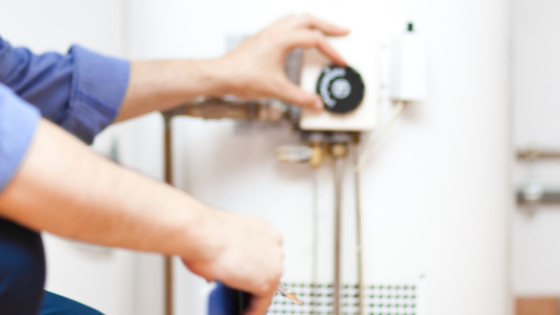The water heater is a natural loser when it comes to energy conservation. That’s because most of us have a traditional storage-type water heater that sits there sucking up power whether we need it or not. So, how can you avoid it from being such a power guzzler? Our Sacramento water heater repair experts share their ways below.
Heating a home is costly, but heating water is much more so. If you’ve already taken significant efforts to lower your home’s heating expenses but your utility bills remain higher than you’d like, your hot water heater might be to blame. Below are some tips and tricks to cut water heater costs.

You’ll save 3% to 5% on your bill for every 10 degrees you lower the temperature. Most water heaters are set at 140 degrees Fahrenheit, which poses a danger of scorching. Most houses should set it to 120 degrees, according to the Energy Department. That’s plenty for your requirements, as well as preventing mineral accumulation in your tank and pipes. Our Sacramento Plumbing Contractor explains how to get it to 120 degrees:
To begin, determine the current temperature of your water. Don’t put your faith in the thermostat. They are frequently incorrect. Instead, use a thermometer to check the hot water temperature at the farthest faucet from the heater. If your water heater’s thermostat doesn’t have a numbered gauge, set it halfway between “low” and “medium.” After a day, take the temperature of the tap as mentioned above. Continue adjusting until you reach your desired temperature.
Remember that some water heaters have two thermostats, one for the bottom heating element and the other for the top heating element.
One surefire strategy to save money on hot water is to use it less.
Our Sacramento Plumbing Company explains that a family of four showering for five minutes every day wastes 700 gallons of water per week, which is enough water to last three years for one person! Also, make sure your dishwasher is set to “economy” and stop pre-washing your dishes. Dishwashers today are capable of handling a filthy dish. Scrape any leftovers into the trash or compost bin before loading.
Tanks naturally collect silt, which affects efficiency and makes energy conservation difficult. Draining the tank will maintain it in good working order. Contact Gilmore today for water heater maintenance services. We’d be happy to help you drain the sediment.
Water will arrive at the faucet 2 to 4 degrees warmer after you insulate your hot water pipes, which means you won’t have to wait as long for it to heat up, saving energy, water, and money.
Basement pipes that are exposed are easy targets: Pipes in crawl areas or walls that are difficult to access may not be worth the effort.
Wrapping an older tank with an insulating blanket is a cheap and easy method to save money, especially if it’s in an unheated location. An insulating blanket can reduce heat loss by 25% to 45 percent and save 4% to 9% on the typical water-heating cost with these older models.
Our Sacramento plumbers share that Insulating blankets are simple to use and affordable. When dressing your tank for energy efficiency, make sure you don’t block the thermostat on an electric water heater or the air inlet and exhaust on a gas water heater.
If you have a newer model that is already insulated, don’t make the mistake of assuming that adding another layer of insulation would save you money. It has the potential to obstruct vital components and become dangerous. Consult your manufacturer for more information.
Whether you need water heater repair or water heater installation, we are here for you! Contact Gilmore today for all of your Sacramento Valley plumbing needs.
Hours: Monday – Sunday: 8:00am – 7:00pm